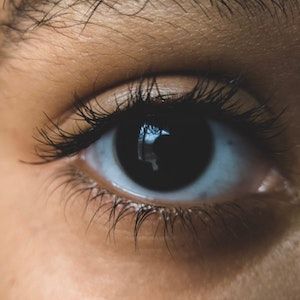Initially Costlier, Ranibizumab PDS May Be More Cost-Effective Long-Term for nAMD Patients
New AAO 2022 data show the novel treatment administration may eventually save patients money versus standard anti-VEGF injfections.

Single port delivery system (PDS) refill of ranibizumab may be more costly for patients with neovascular age-related macular degeneration (nAMD) than nearly 1 dozen administrations of standard anti-VEGF therapy.
In new data presented at the American Academy of Ophthalmology (AAO) 2022 Annual Meeting in Chicago this week, a team of investigators from the Miller School of Medicine at University of Miami observed a one-year mean cost of more than $16,000 associated with PDS delivery of anti-VEGF treatment ranibizumab.
Originally approved by the US Food and Drug Administration (FDA) last year, the PDS delivery system is a novel administration of ranibizumab by a retina implant—reducing the patient’s need for continued intravitreal injections. However, a team led by Jordan Mandell, BS, of the Miller School of Medicine, sought to understand cost differentials between the 2 administration strategies.
“Intravitreal anti-VEGF drugs have reduced blindness due to nAMD by 50-72%,” investigators wrote. “Increasing use of intravitreal anti-VEGF drugs, especially ranibizumab and aflibercept, contribute significantly to health care expenditures, costing Medicare Part B $3.5 million annually.”
Mandela and colleagues accrued data for the direct costs of implantation and fixed 6-month interval refills of ranibizumab PDS versus monthly anti-VEGF intravitreal injections. Their cost compilations via Medicare rates included patient office visits and imaging. They sought a primary outcome of number of injections required to “break even” with the cost of ranibizumab PDS at 1 and 5 years.
From prior research, the team observed that patients’ median time to first refill with ranibizumab PDS was 15.8 months, while median intravitreal anti-VEGF injections were approximately 6 for each of ranibizumab (6.4), aflibercept (6.2) and bevacizumab (5.9).
The 1-year mean cost of ranibizumab PDS with a single refill was $16,054.41.
Aflibercept injection reported a mean difference of -$2,284.05 (95% CI, -16,526.44 to 11,334.62; P = .13). Ranibizumab injection reported a mean difference of -3,877.61 (95% CI, -7,107.60 to -647.61; P = .03). Bevacizumab injection reported a mean difference of -13,930.53 (95% CI, -16,526.44 to 11,334.62; P = .0001).
However, ranibizumab would be cost-saving to each agent except for bevacizumab over 5 years. The team remarked the novel delivery system product may present a “significant marketplace competitor for payers, patients, and physicians.”
A lone PDS refill for patients with nAMD is less expensive than >11 injections of ranibizumab or >10 injections of aflibercept.
“Ranibizumab PDS may be cost-saving in the long-term if used with refills dosed as needed especially in patients receiving regular ranibziumab or aflibercept injections,” investigators concluded.
The study, “Ranibizumab Port Delivery System vs. Intravitreal Injections for nAMD: A Cost Analysis,” was presented at AAO 2022.